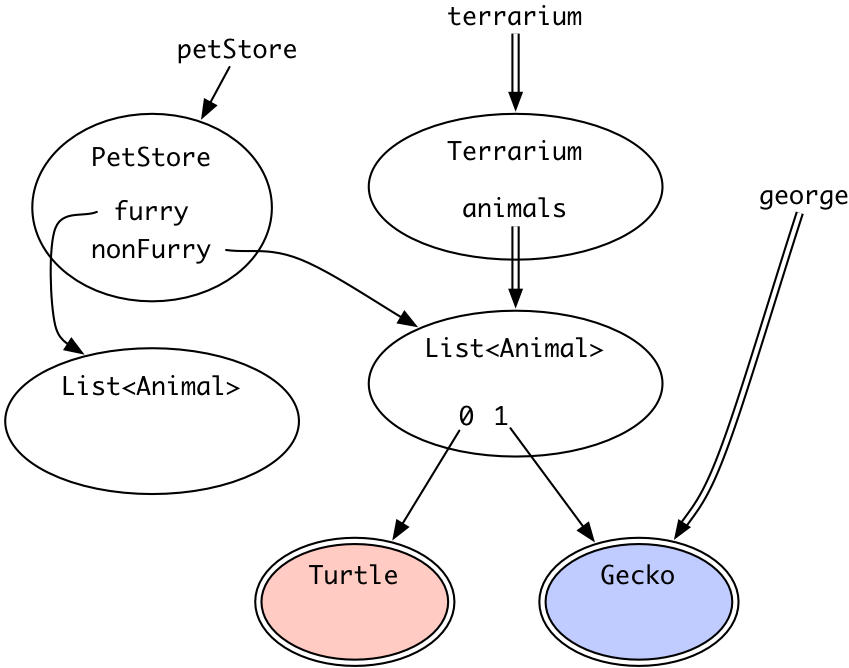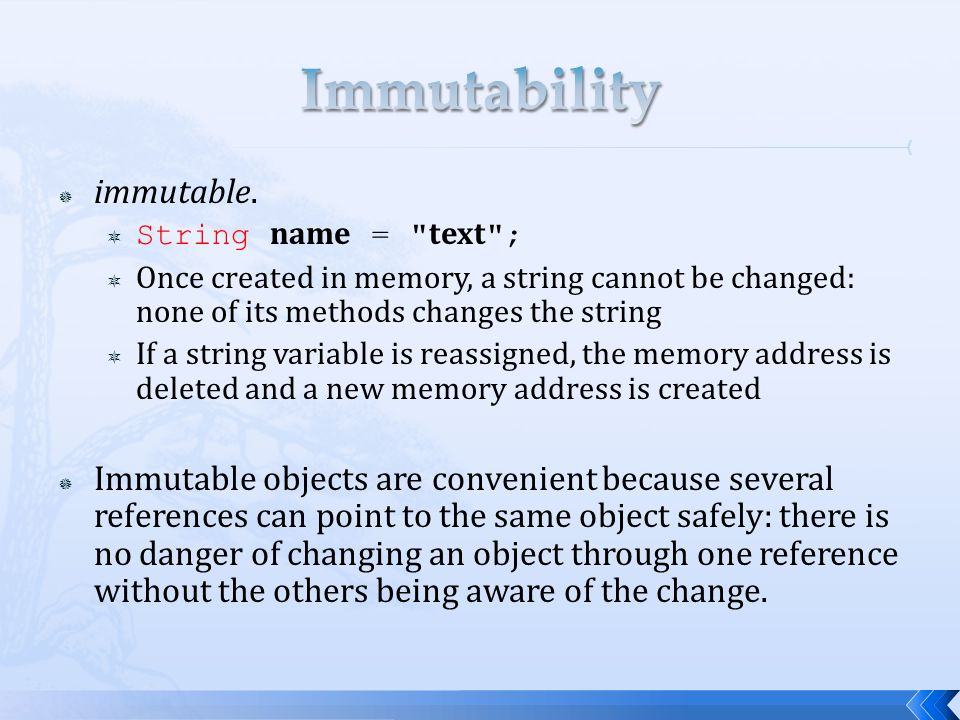The Evolution of Immutable String Handling: An Essential Aspect of Software Program Development
In the intricate realm of software program advancement, the handling of immutable strings stands as a cornerstone that has actually gone through substantial evolution gradually. From its modest beginnings to the complicated tests come across in early applications, the trip of immutable string adjustment has actually been a vital aspect of software application engineering. As we navigate through the historical landscape of this fundamental principle, mapping the improvements, security effects, and arising fads, we locate ourselves at a point where the inherent value of recognizing this development comes to be significantly obvious.
Origins of Immutable Strings
When developers sought to enhance the reliability and protection of data dealing with mechanisms,The idea of immutable strings traces back to the very early days of programming languages. Unalterable strings describe strings that can not be transformed after they are developed. This essential principle was introduced to address problems relating to information integrity and avoid unexpected alterations to vital info stored as strings.

Furthermore, unalterable strings add to enhancing the total security of software application systems (Why are strings immutable in Java?). By avoiding unauthorized events from damaging sensitive string information, immutable strings aid mitigate the threat of data violations and unauthorized access to secret information. This fundamental idea continues to play a vital function in modern-day programs languages and stays a cornerstone of safe and secure and robust software program development practices
Early Obstacles and Solutions
Browsing the landscape of early software advancement positioned considerable hurdles in ensuring the honesty and security of data dealing with devices. One of the key obstacles in handling immutable strings was handling memory effectively. In early systems, memory allotment and deallocation were manual processes, causing prospective memory leakages and susceptabilities. Additionally, making sure that strings remained unaltered proved to be intricate, especially when several components of the codebase needed to accessibility and modify data.
To resolve these difficulties, designers started executing data file encryption methods to secure delicate info kept in unalterable strings. Encryption aided secure data from unauthorized accessibility and manipulation. Moreover, the introduction of hashing formulas supplied a means to confirm the honesty of unalterable strings by generating one-of-a-kind checksums based on their components. These checksums enabled quick contrasts to determine if any adjustments had occurred. By including file encryption and hashing methods into the handling of immutable directory strings, developers dramatically boosted the safety and integrity of information within software program systems.

Innovations in String Immutability
In software development, a notable development in the handling of unalterable strings has emerged via developments in data security and hashing techniques. By using protected hash formulas like SHA-256 or cryptographic strategies such as AES file encryption, developers can ensure that sensitive info saved in unalterable strings remains tamper-proof and protected. These developments have reinforced the integrity and privacy of data within applications, specifically in sectors where information safety and security is critical, such as cybersecurity, finance, and healthcare.
In addition, innovations in string immutability have actually paved the way for enhanced performance optimization. Unalterable strings allow for a lot more reliable memory administration and caching approaches, minimizing the overhead connected with regular string controls (Why are strings immutable in Java?). This optimization not only boosts the total responsiveness of software application applications however likewise adds to much better scalability and resource application
Protection Implications and Best Practices
With the structure laid by innovations in string immutability, recognizing the safety and security ramifications and executing best techniques becomes vital in securing delicate information within software program applications. Unalterable strings play a vital duty in enhancing safety by stopping unapproved adjustments to data, guaranteeing information stability internet throughout the application's lifecycle. By using immutable strings, developers can alleviate common susceptabilities such as shot assaults, barrier overflows, and data tampering, which are usually manipulated by harmful stars to jeopardize systems.
This includes securing information at rest and in transportation, applying correct access controls, using safe coding methods, and regularly updating software components to patch well-known susceptabilities. By integrating these protection steps and finest practices right into software program development procedures, companies can better secure their data possessions and reduce the danger of security breaches and data leaks.
Future Patterns in String Handling
Amidst the ever-evolving landscape of software application growth, the trajectory of string handling is positioned to witness considerable advancements and developments. Programmers are exploring brand-new algorithms and information structures to improve the rate and performance of string operations.
Additionally, another trend imminent is the combination of synthetic intelligence (AI) and machine understanding (ML) in string handling tasks. AI-powered tools are being created to automate and enhance numerous string control processes, causing increased productivity and precision in software program growth workflows.
In addition, there is an expanding focus on improving the safety and security aspects of string handling via advanced security techniques and protected coding methods. As cyber risks continue to advance, guaranteeing the honesty and confidentiality of information within strings is coming to be a top priority for developers. By embracing durable safety and security measures, such as security at rest and in transportation, programmers can mitigate the dangers associated with string control vulnerabilities.
Verdict
To conclude, the advancement of immutable string handling has actually been a vital aspect of software application advancement, beginning with its check my source origins to the advancements made in recent times. Early difficulties have been dealt with through innovative services, leading to better safety and security techniques in managing strings. It is necessary for designers to stay updated on the current patterns in string immutability to make sure the robustness and safety of their software application applications.
Immutable strings refer to strings that can not be transformed after they are developed. Why are strings immutable in Java?. By stopping unapproved events from meddling with delicate string data, unalterable strings help mitigate the threat of data violations and unauthorized accessibility to personal information. By incorporating security and hashing techniques right into the handling of unalterable strings, developers significantly enhanced the safety and reliability of data within software application systems
Immutable strings allow for a lot more reliable memory administration and caching approaches, lowering the expenses linked with frequent string adjustments. Immutable strings play a critical function in improving safety by avoiding unapproved adjustments to information, making sure information honesty throughout the application's lifecycle.
Comments on “Why Are Strings Immutable in Java? Necessary Knowledge for Designers”